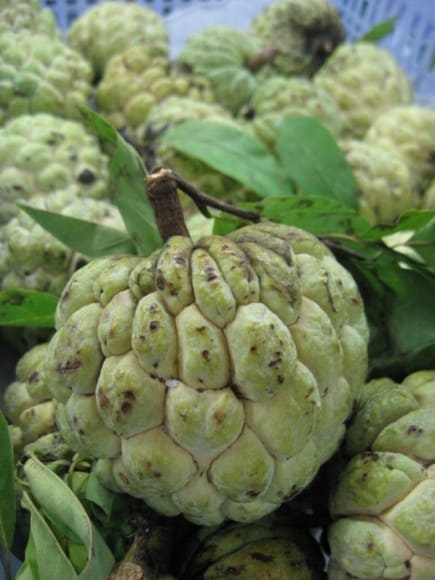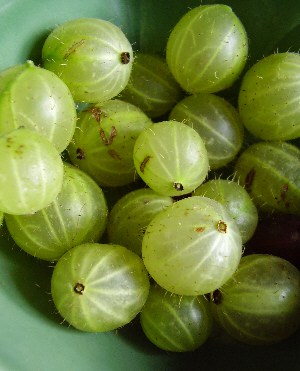The loquat is a fruit tree in the familyRosaceae, indigenous to southeastern China. It was formerly thought to be closely related to the genus Mespilus, and is still sometimes known as the Japanese medlar.
The loquat is indigenous to southeastern China and possibly southern Japan, though it may have been introduced into Japan in very early times. It is said to have been cultivated in Japan for over 1, 000 years. The western world first learned of it from the botanist Kaempfer in 1690. Thunberg, who saw it in Japan in 1712, provided a more elaborate description. It was planted in the National Gardens, Paris, in 1784 and plants were taken from Canton, China, to the Royal Botanical Gardens at Kew, England, in 1787. Soon, the tree was grown on the Riviera and in Malta and French North Africa (Algeria) and the Near East and fruits were appearing on local markets. In 1818, excellent fruits were being produced in hothouses in England. The tree can be grown outdoors in the warmest locations of southern England.
Cultivation spread to India and southeast Asia, the medium altitudes of the East Indies, and Australia, New Zealand and South Africa. Chinese immigrants are assumed to have carried the loquat to Hawaii.
In the New World, it is cultivated from northern South America, Central America and Mexico to California: also, since 1867, in southern Florida and northward to the Carolinas, though it does not fruit north of Jacksonville. It was quite common as a small-fruited ornamental in California gardens in the late 1870’s. The horticulturist, C.P. Taft, began seedling selection and distributed several superior types before the turn of the century, but further development was slow. Dwarfing on quince root-stocks has encouraged expansion of loquat cultivation in Israel since 1960. In the northern United States and Europe, the tree is grown in greenhouses as an ornamental, especially var. variegata with white and pale-green splashes on the leaves.
In India and many other areas, the tree has become naturalized, as it volunteers readily from seed. Japan is the leading producer of loquats, the annual crop amounting to 17,000 tons. Brazil has 150,000 loquat trees in the State of Sao Paulo.
Health Benefits of Loquat
Loquat is a yellowish fruit, which grows in a cluster. The shape of the fruit is somewhat oval, pear-shaped or even round. The scientific name of the fruit is Eriobotrya japonica (Thunb.) Lindl and it belongs to the Rosaceae family. Loquat is known to be indigenous to China. However, it has been grown in Japan and India since antiquity and is also found in Indochina, the Mediterranean region, and to some extent, the New World subtropics. Depending on its variety, the taste of a loquat can vary from subtle to honey-rich.
Loquat Leaf has been scientifically shown to have a large amount of incredible health benefits. And below are some uses for this natural herb that may surprise you.
- Loquat Leaf Aids Mucous Membranes
The extract of the Loquat leaf can be used in a variety of ways, In our Detox Foot Pads, the Organic Loquat Leaf extract will assist the body by acting as a mucolytic agent, which helps dissolve thick mucus that holds toxic compounds. - Loquat Leaf Releases Antioxidants
We know that Loquat leaf helps your body to release anti-oxidants, the wonderful anti-aging agents that your body naturally produces.² Anti-oxidants have all kinds of benefits, especially the ability to neutralize harmful toxins. It is commonly used to prevent various diseases, increase immunity, and add life expectancy. - Loquat Leaf Combats Diabetes
One of the Organic Loquat leaf’s most impressive abilities is that it helps combat diabetes. Loquat leaf produces a variety of chemicals called triterpenes, one of which is called tormentic acid. Tormentic acid has been shown to increase insulin production which may help to reduce diabetes.³ It has been approved by the Chinese government as an anti-diabetic agent because it produces a set of natural bodily chemicals known as polysaccharides, which also increase insulin production.4 - Loquat Leaf Supports the Pancreas
The only way to fight Diabetes is to either supplement the pancreas’s production of insulin or to help the pancreas produce insulin by regenerating its cells. But we have strong evidence that Organic Loquat Leaf supports pancreatic cells, which increases the production of insulin, helping diabetics in a natural way.4 Diabetes is a debilitating, degenerative disease. Insulin treatment helps, but anything that can assist the pancreas is of great help. - Loquat Leaf Assists the Liver in Detoxifying Chemicals
The pancreas isn’t the only bodily organ that Organic Loquat leaf helps. It also helps the liver. Loquat leaf contains a substance known as Amygdalin (B-17), and this substance is known to help combat liver disorders as well as supporting the livers ability to process and eliminate poisons in the body.² It is somewhat controversial as to how effective Amygdalin is in the support of liver problems, but many believe that the controversy is due largely to excessively Western modes of thinking about health. Amygdalin, incidentally, is thought to have its benefits through anti-oxidation effects. - Loquat Leaf Fights Skin Inflammation
One of Loquat leaf’s oldest reported benefits is the reduction of skin inflammation. And when Loquat leaf is used in topical cream, it can combat edema and histamine-induced skin contraction. In short, it helps the skin heal from inflammation of various kinds.5 Skin inflammation can often be painful and the soothing effect of Loquat leaf can be very beneficfial. - Loquat Leaf Aids in the Fight Against Skin Cancer
Another benefit of Loquat leaf that’s getting much exploration is it’s ability to fight skin cancer as well. One of the major drugs that is used to combat the side effects of chemotherapy is adriamycin; Loquat leaf is thought to help reduce the side effects of this drug.² But what’s most important is that Loquat leaf contains chemicals that can slow skin cancer.³ Loquat leaf has the unique ability to suppress cancer cells’ ability to reproduce and grow.6 In this way, it can be a great asset to those with minor forms of skin cancer. - Loquat Leaf Fights A Variety of Viruses
Standard viruses are subject to the power of the Loquat Leaf. There is evidence that suggests that the Loquat leaf produces a variety of acids that have an anti-viral effect. These acids produce antigens, which are anti-viral agents.³ Two of these chemicals are called megastimane glycosides and polyphenolic constituents which are known to produce viral antigens. Further, the triterpene chemicals help to directly reduce rhinovirus infections (colds of various kinds).8 - Loquat Leaf May Even Help Fight HIV
It may sound too good to be true, but there is even evidence that Loquat leaf can have a mild suppressive effect on the HIV virus. This use is possible because of the acids present in this herb. One of these acids in organic Loquat leaf is the 2-alpha-hydoxyursolic acid, and it has the anti-HIV effect.³

